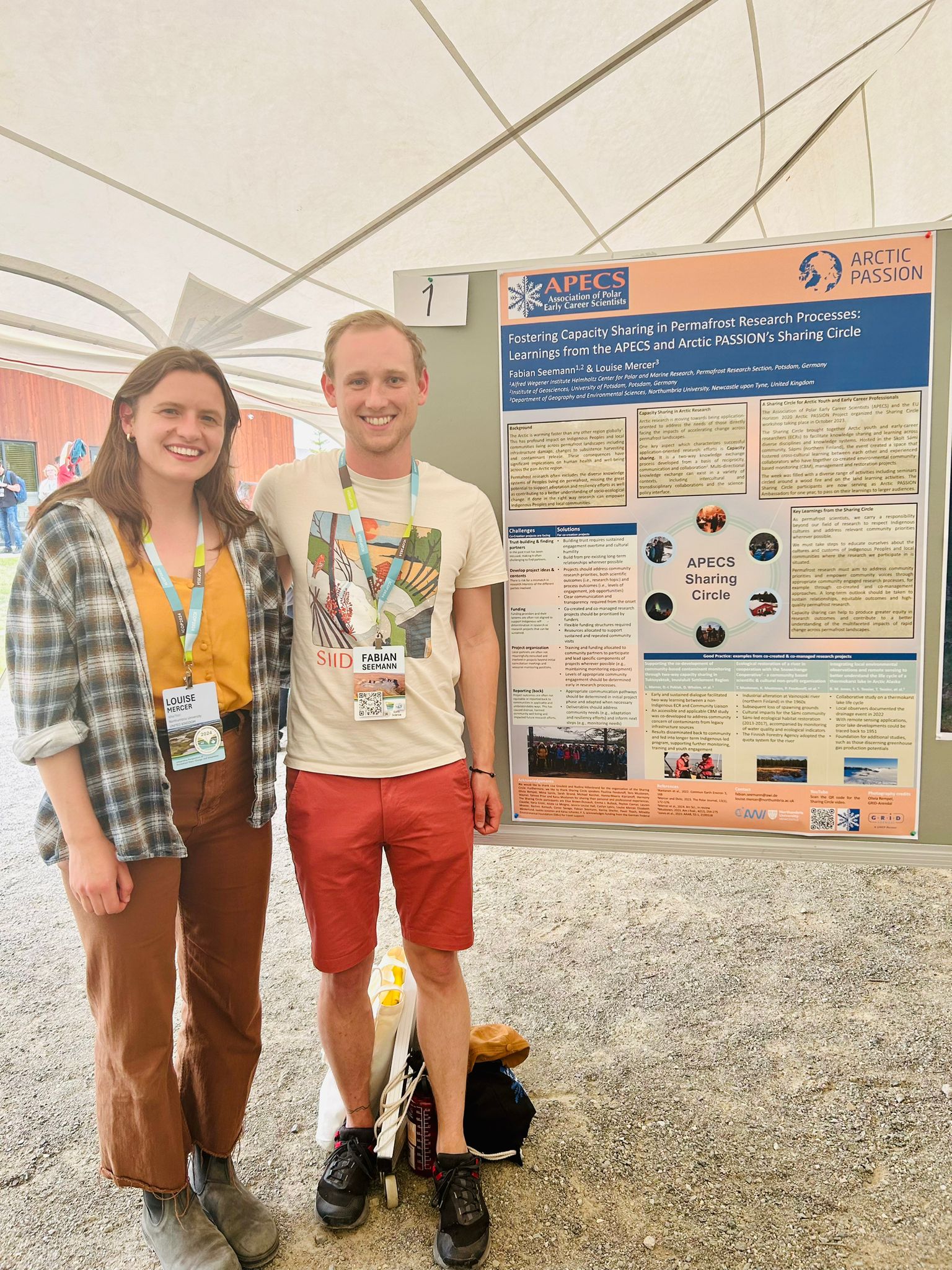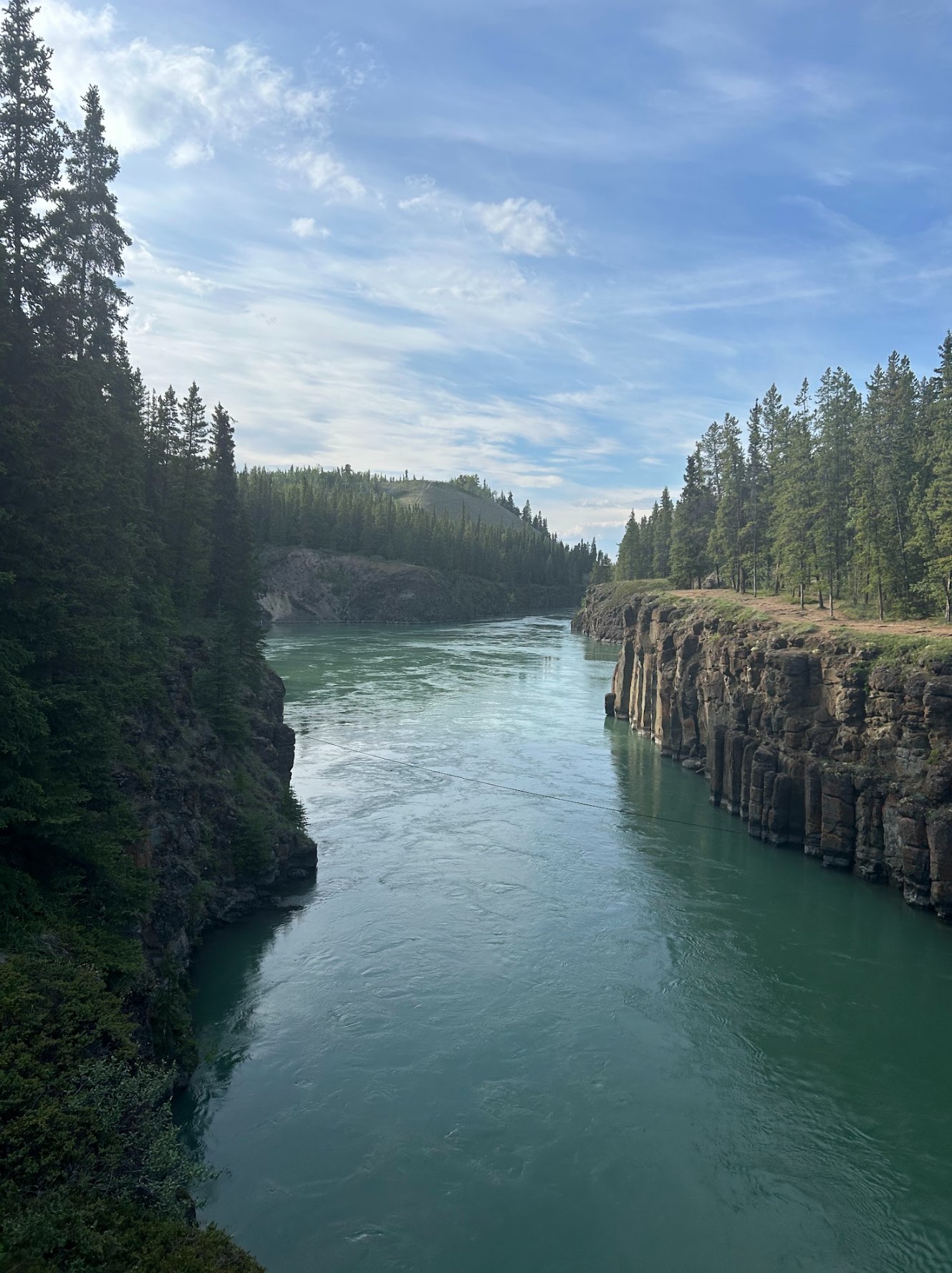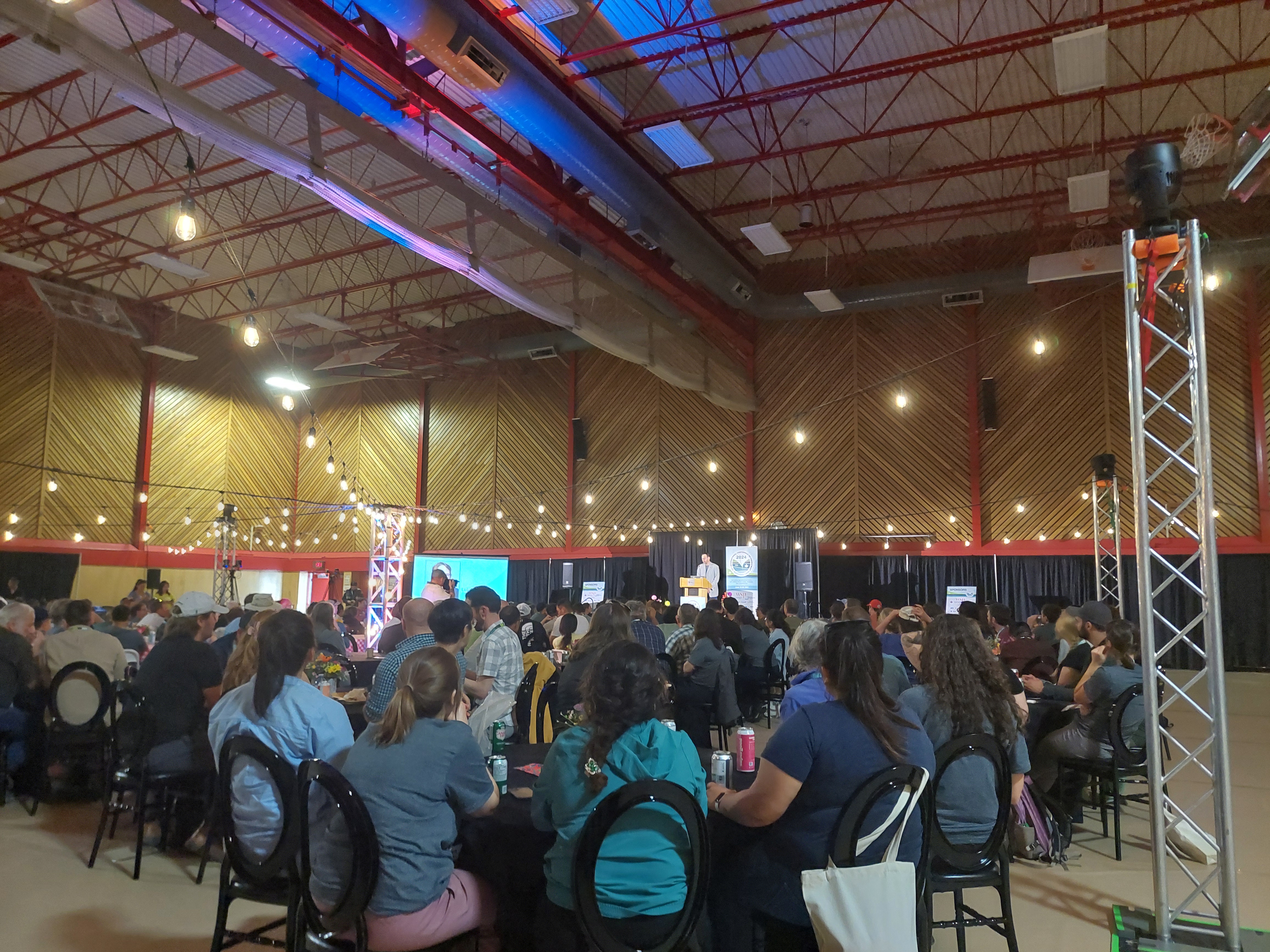Sharing Circle Representation At The 12th International Conference On Permafrost (Icop) In Whitehorse, Canada
by Louise Mercer and Fabian Seemann | Published: 23-Aug-24 | Last updated: 22-Aug-24 | Tags : adaptation career conference ECR knowledge permafrost sharing | category: NEWS
The APECS/Arctic PASSION Sharing Circle participants have become Ambassadors who have developed their own outreach projects to share their newly gained knowledge and experiences with their communities, institutes or other chosen audiences.

Louise and Fabian with the poster they presented at ICOP 2024. Photo: Fleur Van Crimpen
Sharing Circle participants Fabian Seemann (Alfred Wegener Institute, Germany) and Louise Mercer (University of Northumbria, UK) presented the outcomes from the Sharing Circle during a poster session at the International Conference on Permafrost (ICOP) 2024 in Whitehorse, Canada as part of their Arctic PASSION Ambassador projects. The ICOP conference brought together more than 450 permafrost scientists from a range of disciplines and career stages to discuss key topics surrounding the theme of integrating perspectives on permafrost thaw, change and adaptation.
The event took place at the banks of the Yukon River in the Kwanlin Dün Cultural Centre, on the Traditional Territory of the Kwanlin Dün First Nation and the Ta’an Kwӓch’ӓn Council, which was acknowledged throughout the conference. This provided a wonderful opportunity and space to learn, reflect and connect with the cultural heritage of the area, as encouraged to do so during plenary talks by the Whitehorse Mayor and Indigenous representatives from the area. This conference proved to be especially important for those researchers who do not come to the Arctic regularly; for some Early Career Researchers (ECRs) attending ICOP was their first time visiting the Arctic.
 On the banks of the Yukon River. Photo: Fleur Van Crimpen
On the banks of the Yukon River. Photo: Fleur Van Crimpen
The interest in presentations surrounding community-based research and education was evident. The Sharing Circle poster was part of the session on “Permafrost Education and Outreach for Everyone in a Warming World” which was hosted by Ylva Sjöberg. The poster entitled “Fostering Capacity Sharing in Permafrost Research Processes: Learnings from the APECS and Arctic PASSION’s Sharing Circle“ summarized the need for community engaged research projects. Challenges and potential solutions discussed throughout the Sharing Circle were highlighted. There is “no one size fits all” approach to collaborative research so we provided examples on co-creation and co-managed research projects from different research and place-based contexts to present good case studies for attendees to gain insight and ideas.
Key learnings shared from the Sharing Circle included:
- As permafrost scientists, we carry a responsibility beyond our field of research to respect Indigenous cultures. We must take steps to educate ourselves about the cultures and customs of Indigenous Peoples and local communities where the research we participate in is situated.
- Permafrost research must aim to address community priorities and empower community voices through appropriate community engaged research processes, for example through co-created and co-management approaches. A long-term outlook should be taken to sustain relationships, equitable outcomes and high-quality permafrost research.
- Capacity sharing can help to produce greater equity in research outcomes and contribute to a better understanding of the multifaceted impacts of rapid change across permafrost landscapes.
Attendees, especially ECRs, showed strong interest in the Sharing Circle concept, design and outcomes. We found this to be an overwhelmingly positive opportunity being taken since ECRs – the future leaders- are the ones who have the influence to shape future research projects and Arctic research processes for the better. For many, community engaged work was a well-known topic but challenges of applying it in practice were expressed. The poster provided some solutions to commonly raised issues during discussions. For some, the poster facilitated awareness training surrounding the importance of collaborative and equitable research processes. Many later-career stage researchers were interested in future application of the Sharing Circle method to their own research projects. It will be important to continue to share learnings from the APECS and Arctic PASSION`s Sharing Circle in terms of learnings but also logistical aspects (i.e., concerning funding, participants, program structure) to help others looking to apply the approach. Overall, it is clear that the research community is experiencing a movement towards embracing and supporting capacity sharing within research processes. ICOP provided a unique chance to present the Sharing Circle approach and learnings with the permafrost research community. Offering opportunities for ECRs to attend events like the Sharing Circle are crucial to creating a step-change in the way research is conducted in the Arctic.
 The 2024 International Conference on Permafrost. Photo: Fabian Seemann
The 2024 International Conference on Permafrost. Photo: Fabian Seemann
Through the conference, Sharing Circle participants met again and maintained connections moving forward. These opportunities are important as participants of the workshop were spread across countries and cultures. Though geographically apart, we are connected through our experiences. Attending ICOP enabled us to reconnect, discuss future research ideas and continue conversations from the Sharing Circle. Keeping these dialogues and connections through a variety of means will be important moving forward.
